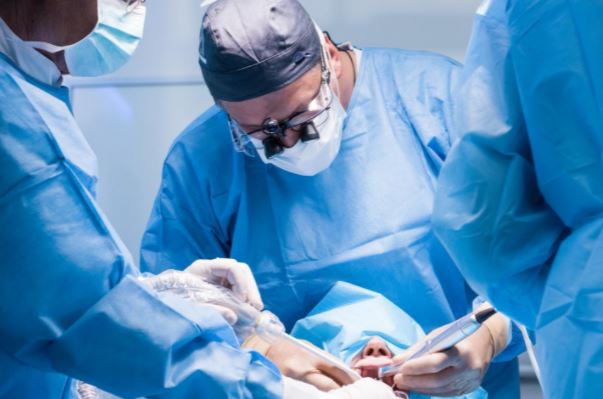 An average dental practice performs approximately 30 oral surgeries or maxillofacial surgeries each month. If you’re about to go in for oral surgery, you may be worried about what’s to come and the potential pain involved. It is completely normal to be anxious before you have any surgery, but if you’re prepared, you can reduce that anxiety significantly.
An average dental practice performs approximately 30 oral surgeries or maxillofacial surgeries each month. If you’re about to go in for oral surgery, you may be worried about what’s to come and the potential pain involved. It is completely normal to be anxious before you have any surgery, but if you’re prepared, you can reduce that anxiety significantly.
In this blog post, we’ll discuss some of the ways you can prepare for oral surgery. We’ll help you get ready as efficiently as possible, so you’ll not only have as little anxiety as possible but be able to work with the dentist to ensure your healing is as easy as possible.
Read on for more information to help you prep for your upcoming surgery.
-
Ask Your Dentist to Explain Everything in Detail
Before you have your surgery, ask your dentist to explain exactly what will happen in detail. You may ask them to draw a diagram to help you better understand what will happen to your tooth or teeth. If they have a pamphlet about the procedure or a video, ask them to see these. This will help you better understand what is happening inside your mouth so you won’t be as anxious.
You may wish to research yourself, such as following this link for more information on bone grafting. Remember, however, watching videos or following links out of context may make you more anxious, so it is important to discuss all of this with your dentist before working yourself up.
-
Ask Questions
You may wish to make a list of questions ahead of your surgery. For example, you may wish to discuss alternatives if you’re having second thoughts, such as tooth extraction and what that would involve. Your questions should also include practicalities, such as when you’ll be able to eat normally again if you’ll be taking painkillers, and how long for and when you can return to your normal activities. Finally, you may wish to ask what to avoid in order to make the healing process as easy as possible.
If you’re a smoker, ask how long until you can pick up a cigarette again, as you’re not advised to smoke after some surgeries for at least one day.
-
Have Someone to Care for You the Day of the Surgery
If you have anesthesia, you may be out of commission for a full day. Some people have adverse effects of anesthesia that they don’t know about until they’ve had the anesthesia. You may also experience nausea or pain. As such, you should have someone with you for the first 24 hours after your procedure to ensure that you’re all right. They should also be there to ensure you’re able to go to the bathroom and get the food you need. Your dentist may also give you prescriptions for painkillers. As such, you must have someone to get them for you so that it is not your responsibility.
Ideally, you should have this person spend the night with you for at least one night, if not longer, to ensure you’re all right post-surgery.
-
Plan Your Diet and Be Prepared
Ask your dentist what kinds of foods you’ll be able to eat after your procedure. They will tell you what you can and cannot eat, and you should have these foods on hand ready for you when you get home. If you can eat soft foods, like soup or pasta, for example, you may wish to cook some in advance so that you can heat them and eat them after surgery.
In some extreme cases, you may not be able to eat solid foods for several days. In these cases, you should be well aware of this beforehand so that you’re fully stocked on what you can and can’t eat.
-
Wear Comfortable Clothes
Make sure you’re not wearing anything that’s too restrictive or makes you feel confined. You’ll want to feel as comfortable as possible in your clothes so that you don’t have anything pulling or tugging at you when you fall asleep or when you wake up.
-
Discuss Preparations with Your Dentist
Your oral surgery may have certain preparations or precautions you need to take. As such, discuss this with your dentist well in advance of your surgery. This way, you won’t risk having to cancel the surgery because you didn’t follow instructions or you and the doctor had your wires crossed.
-
Sleep Well the Night Before
This may be difficult if you’re extremely nervous, but sleeping well will help you recover better. If you’re devoid of sleep, you may feel sick, and your body may not be able to bounce back as quickly as you’d like. Aim to get at least 8 hours of sleep the night before a procedure to ensure that your body is ready for the mini-trauma of having oral surgery.
Preparing for Oral Surgery
Oral surgery doesn’t have to be scary if you’re prepared for it and know what to expect. While it is understandable to be a little bit anxious, if you’re all ready for the big day, things will go a lot more smoothly than if you’re rushing around or unsure about what is going to happen. Above all, make sure you feel as though your dentist has adequately prepared you for the day of the procedure.
For more tips and tricks on all things health and beauty, be sure to visit the rest of our site!




